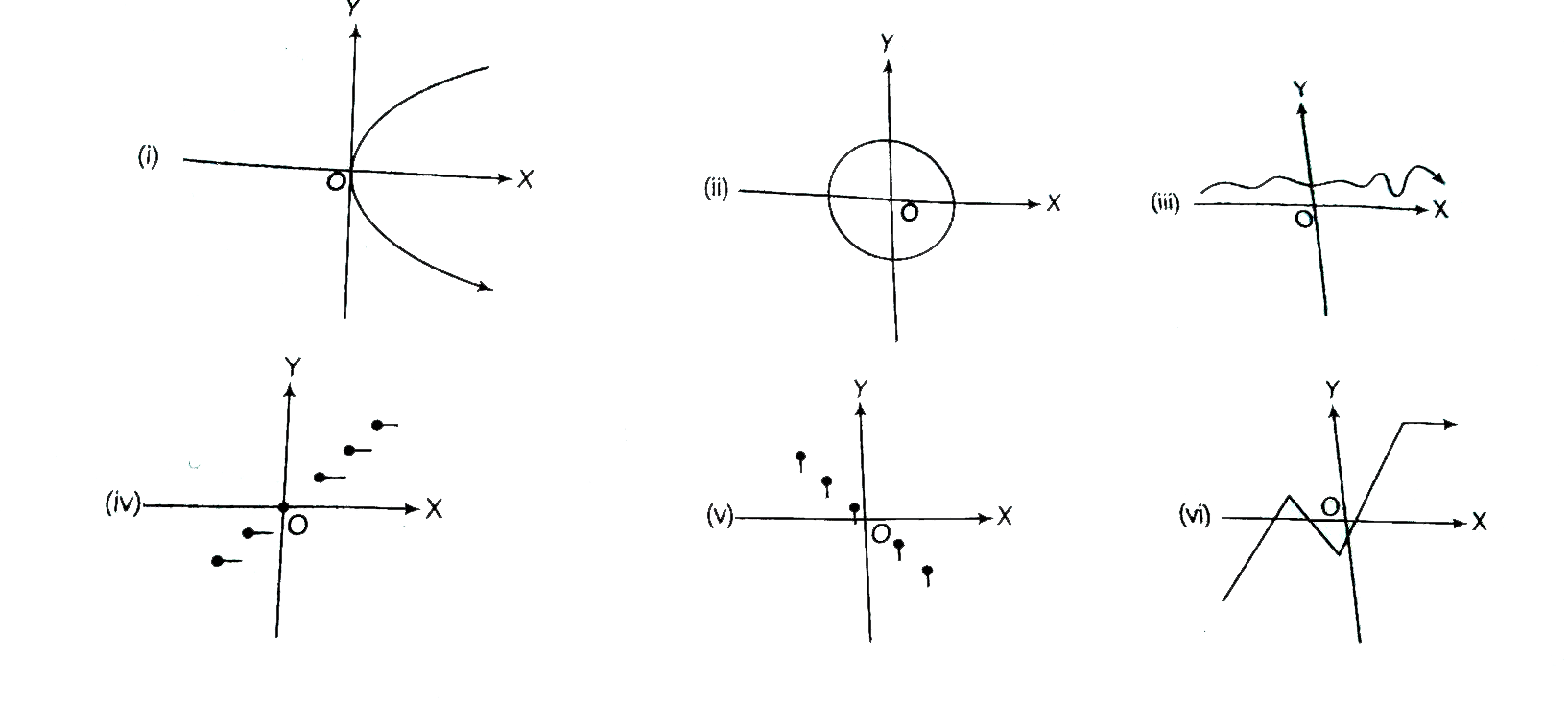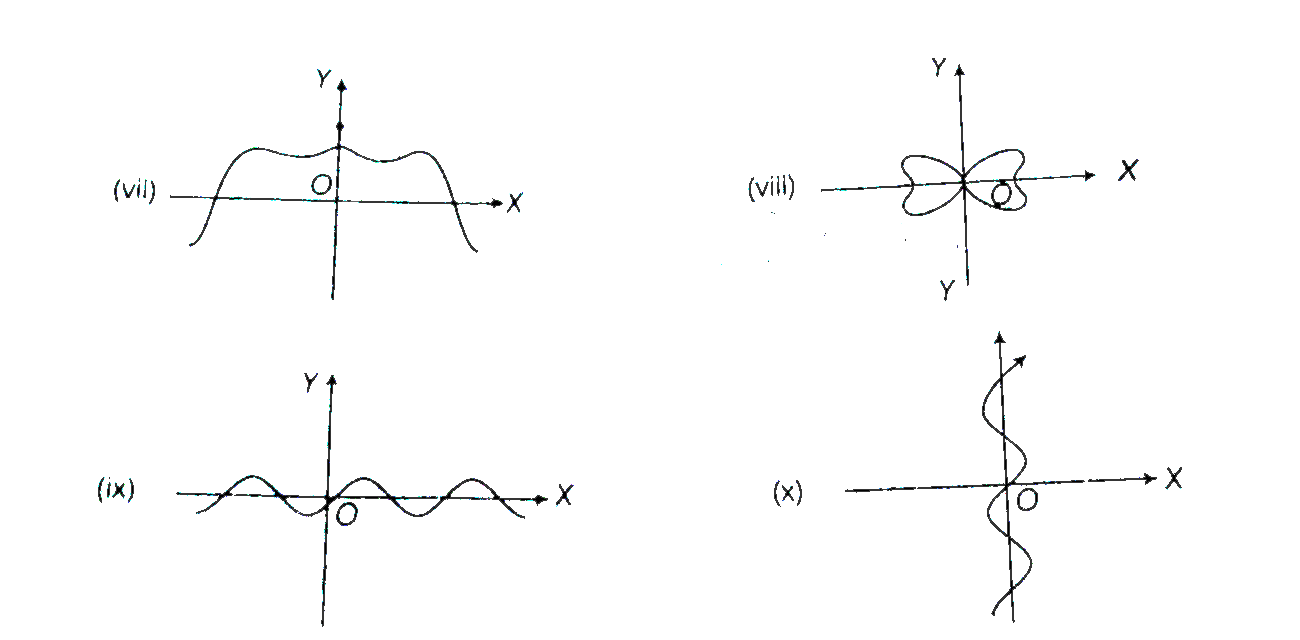If the function f(x)=[3.5+bsin x] (where [.] denotes the greatest integer function) is an even function, the complete set of values of b is
(-0.5,0.5)
[-0.5,0.5]
(0,1)
[-1,1]
The correct Answer is:A
To solve the problem, we need to determine the complete set of values of b such that the function f(x)=(3.5+bsinx) is an even function.
1. Understanding Even Functions:
An even function satisfies the condition f(−x)=f(x) for all x.
2. Setting Up the Equation:
For our function, we have:
f(−x)=(3.5+bsin(−x))=(3.5−bsinx)
Since sin(−x)=−sinx.
3. Equating the Two Expressions:
For f(x) to be even, we need:
(3.5+bsinx)=(3.5−bsinx)
4. Analyzing the Greatest Integer Function:
The greatest integer function (x) returns the largest integer less than or equal to x. Therefore, we need to consider the values of 3.5+bsinx and 3.5−bsinx.
5. Finding the Range of the Function:
- The term bsinx varies between −|b| and |b| as sinx varies from -1 to 1.
- Thus, 3.5+bsinx will range from 3.5−|b| to 3.5+|b|.
6. Setting the Conditions for Equality:
For the two expressions to be equal under the greatest integer function, the ranges must overlap in such a way that they yield the same integer values. This means:
3.5−|b|<4and3.5+|b|>3
7. Solving the Inequalities:
- From 3.5−|b|<4:
−|b|<0.5⟹|b|<0.5
- From 3.5+|b|>3:
|b|>−0.5(which is always true since |b|≥0)
8. Combining the Results:
Therefore, the only condition we have is |b|<0.5, which can be expressed as:
−0.5<b<0.5
9. Final Answer:
The complete set of values of b is:
b∈(−0.5,0.5)
An even function satisfies the condition f(−x)=f(x) for all x.
For our function, we have:
f(−x)=(3.5+bsin(−x))=(3.5−bsinx)
Since sin(−x)=−sinx.
For f(x) to be even, we need:
(3.5+bsinx)=(3.5−bsinx)
The greatest integer function (x) returns the largest integer less than or equal to x. Therefore, we need to consider the values of 3.5+bsinx and 3.5−bsinx.
- The term bsinx varies between −|b| and |b| as sinx varies from -1 to 1.
- Thus, 3.5+bsinx will range from 3.5−|b| to 3.5+|b|.
For the two expressions to be equal under the greatest integer function, the ranges must overlap in such a way that they yield the same integer values. This means:
3.5−|b|<4and3.5+|b|>3
- From 3.5−|b|<4:
−|b|<0.5⟹|b|<0.5
- From 3.5+|b|>3:
|b|>−0.5(which is always true since |b|≥0)
Therefore, the only condition we have is |b|<0.5, which can be expressed as:
−0.5<b<0.5
The complete set of values of b is:
b∈(−0.5,0.5)
Topper's Solved these Questions
- FUNCTIONSBook:ARIHANT MATHS ENGLISHChapter:FUNCTIONSExercise:Exercise For Session 1
Explore 5 Videos
- FUNCTIONSBook:ARIHANT MATHS ENGLISHChapter:FUNCTIONSExercise:Exercise For Session 2
Explore 6 Videos
- ESSENTIAL MATHEMATICAL TOOLS Book:ARIHANT MATHS ENGLISHChapter:ESSENTIAL MATHEMATICAL TOOLS Exercise:Exercise (Single Integer Answer Type Questions)
Explore 3 Videos
- GRAPHICAL TRANSFORMATIONSBook:ARIHANT MATHS ENGLISHChapter:GRAPHICAL TRANSFORMATIONSExercise:Exercise (Questions Asked In Previous 13 Years Exam)
Explore 10 Videos
Similar Questions
Which of the following graphs are graphs of a function?


View SolutionThe domain of the function
f(x)=√x2−5x+6+√2x+8−x2 , is
View SolutionThe number of solutions of the equation |x−1|−|2x−5|=2x
View SolutionFind the number of solutions of the equation x21−|x−2|=1, graphically.
View SolutionThe function,f(x)=[|x|]-|[x]| where [] denotes greatest integer function:
View SolutionIf the function f(x)=[2.6+b sin x] where [.] denotes greatest integer function,is an even function then complete set of values of b is:
View SolutionIf the function f(x)=[(7)/(3)+2a sin^(3)x] is an even function (where [*] denotes the greatest integer function),then the exhaustive range of a is
View SolutionLet f(x)=(-1)^([x]) where [.] denotes the greatest integer function),then
View SolutionIf F(x)=sinπ[x]{x} then F(x) is (where {.} denotes fractional part function and [.] denotes greatest integer function and sgn(x) is a signum function)
View SolutionIf the function f(x)=[3.5+bsinx] (where [.] denotes the greatest integer function) is an even function, the complete set of values of b is
View SolutionDetermine whether function, f(x)=(−1)[x] is even, odd or neither of two (where [⋅] denotes the greatest integer function).
View SolutionThe function f(x)={x}sin(π[x]), where [.] denotes the greatest integer function and {.} is the fraction part function , is discontinuous at
View SolutionThe complete set of values of x in the domain of function f(x)=√logx+2{x}([x]2−5[x]+7) where [.] denote greatest integer functioon and {.} denote fraction pert function) is :
View SolutionThe function f(x)={x}sin(π[x]), where [.] denotes the greatest integer function and {.} is the fractional part function, is discontinuous at
View SolutionIf [cot−1x]+[cos−1x]=0 then complete set of values of 'x' is (where [*] denotes the greatest integer function)
View Solution
